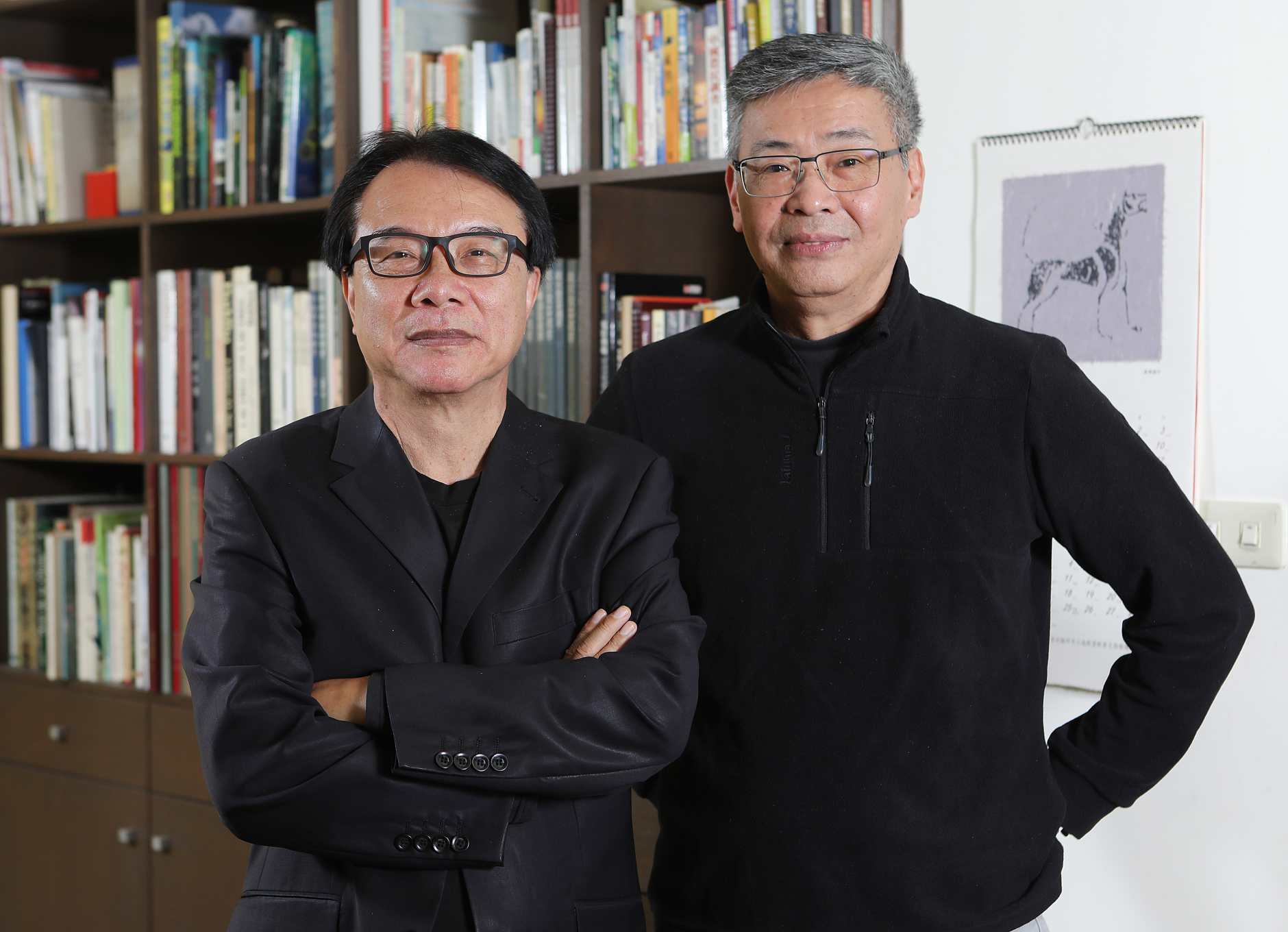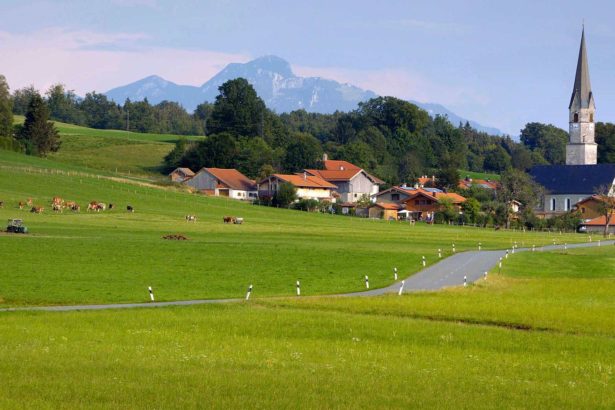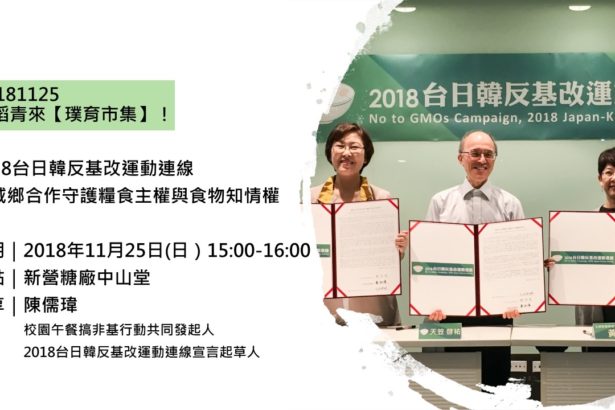Foresight in Rural areas 01 │ Lin Shengfeng: Taiwan wants to become a progressive country, focusing on rural areas at this time
Share + 1 Tweet Email
Taiwan's rural areas are facing increasingly serious problems, ranging from the physical decline of rural areas, the outflow of population, the decline of industries, to the plunder of external forces, and the growth of farmhouses and illegal factories on agricultural land. Liu Song, an internationally renowned director, and Lin Sheng-feng, a member of the supervision committee, began to brew ten years ago, hoping to look for examples of rural areas in various countries, explore the possibility of rural development from the perspective of "foresight and sustainability," and arouse the imagination of rural areas in Taiwan society.
After four years of filming and editing, the documentary "Vision in the Countryside" will be released on Public Television in December, from the unique Subark system in Bali, Indonesia, the rural style of Huaiyang in Germany, the Napa Valley in the United States, to Green Heart in the Netherlands, and the MOA system in Japan, each case has a unique vision and a way of sustainable development.
Lin Sheng-feng, who once planned and produced the Vision of the City, said, "originally PTV hoped to film the second season of the Vision of the City, but I think if Taiwan is to become a progressive country, the focus at this time is not on the cities, but on the rural areas." If Taiwan can take stock of the existing resources in rural areas and carefully invest in rural areas, "We will become a very good country." Lin said that the importance of rural areas is no less or even higher than that of cities, but it is a pity that Taiwan has not yet realized it.


German Huaiyang _ 06_ rural landscape
How does making a documentary change Taiwan? "Let's figure out how to answer it."
"A lot of people ask us what this series has to do with Taiwan and what reference it can give to Taiwan." Liu Song said that with Taiwan's point of view, Taiwan's problems to find the direction, many problems are unsolved, but the content of the interview film is to echo. "We go abroad with a sense of Taiwan." Lin Sheng-feng explains that from picking topics to interviewing questions, "every question has a Taiwan consciousness and a Taiwan point of view."
Liu Song further gave an example. Take the Napa River Valley in the United States as an example. Before the interview, he did not know that the local winery had autonomous regulations, so he was very curious about how to achieve a balance of development under the development of tourism, or whether there would be food safety problems for farmers to provide residential accommodation. Upon asking, we know that the local winery has autonomous regulations, which manage the output and the number of employees. The winery can only be used for wine tasting and sightseeing, and no weddings, restaurants, spa, etc., and strict total quantity control. In this way, we ask questions with a sense of Taiwan, refer to foreign solutions, and then bring them back to Taiwan to arouse discussion and find out Taiwan's own solutions.
Lin Sheng-feng says that land use management comes from insisting on the rural landscape, and they also have the process of struggling, and now they can gather collective wisdom. "Taiwan's collective wisdom is self-destruction, and now there are young farmers, and it's not too late for Taiwan. We just need to take our time."
Lin Shengfeng says that changes in Taiwan's rural areas cannot be achieved in one step. "We can only open the window and please look out." Stop thinking about how much farmland will cost and how much house prices will rise. The concept to be conveyed in the film is that urban people should know that rural areas have their sacred autonomy, not because of poor conditions, but because conditions are too good and ecological integrity can become rural areas. This film is not a solution, but a solution for everyone to think about rural Taiwan after watching the film.
The documentary series "Vision in the Countryside" will be broadcast on the main channel of Public Television at 10 p.m. every Tuesday from December 4 this year.
Share + 1 Tweet Email
- Prev

"Rural Vision" 02 │ amazing rural self-determination! Huaiyang Township in Germany has handed over the right of land planning to the township government office, and young people are welcome to live here.
"Rural Vision" 02 │ amazing rural self-determination! Huaiyang Township in Germany has handed over the right of land planning to the township government office, and young people are welcome to live here.
- Next

20181125 Handao Qinglai Market short talk | 2018 Japan and South Korea Anti-basic Reform campaign connection: urban-rural cooperation to protect food sovereignty and food right to know
20181125 Handao Qinglai Market short talk | 2018 Japan and South Korea Anti-basic Reform campaign connection: urban-rural cooperation to protect food sovereignty and food right to know
Related
- A course of planting techniques and methods on how to grow carrots
- How to plant the latest tulips?
- Is it better to pick tea in the morning or in the afternoon? When is the best time for tea to be picked? what is the third or fifth tea?
- Launch Yuanxiao Happy combination Haocha + Tea Yuan healthy Taste
- Penghu Tourism "Fireworks 20 Parade with You"
- 2022 West Lake Happiness holds "Digital Revitalization Voucher" and draws iphone13 and laptop.
- Banqiao Fuzhou social houses are designed to change start-up combined with police elimination to create a safe and livable environment
- The convenient measure of "mechanical weeding" in Xinbei has been abused and the Agriculture Bureau has imposed heavy penalties on the illegal land consolidation.
- Changgeng University Joins Hands with Four Memory Factories to Rescue Memory Talent Shortage
- The list of Taiwan's top 100 MVP managers is listed by the Director-General of the Farmers' Association of Sanxia District.

